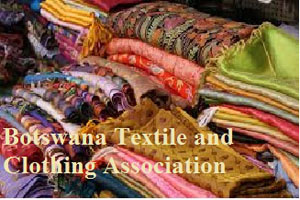
Botswana Textile and Clothing Association plans to eliminate competition from Asian companies
YarnsandFibers News Bureau 2014-10-25 10:00:00 – BotswanaThe textile and clothing companies have newly formed Botswana Textile and Clothing Association (BTCA) that will help in enhancing growth and sustainability of their trade in highly competitive market. It also aims to eliminate the existing competition, especially from Asian companies in the textile and clothing industry.
According to BTCA founding president, Mr Shahid Ghafoor, it would promote the development of a globally competitive and sustainable textile and clothing sector in Botswana.
The Asian countries have a competitive advantage in terms of lower labour costs supported by efficient production, availability of vast and cheaper sources of raw materials.
Competition from Asia is tough. However, to help local companies, the association will engage developing skills of the industry with the help of the relevant stakeholders.
BTCA would further assist the sector to increase domestic, regional and international markets share for Botswana textile and clothing in addition to increasing innovation and creativity among its members.
Ghafoor also indicated that companies will be capacitated on the benefits of using modern technology for efficiency and economies of scale production. He pointed out that implementation of the medium to long-term strategy would assist to ascertain how best to address the sector’s needs. He, however, bemoaned the sluggish penetration of local companies into the international market .
There is presently only one company, Carapparel Botswana, which has taken advantage of the African Growth and Opportunity Act (AGOA).
Carapparel currently employs about 1,000 workers and operates a 5,000 square metre factory in Broadhurst Industrial equipped with 1,500 industrial sewing machines. The company manufactures knitted and woven garments for men, women and children for local consumption and export to USA market .
AGOA was signed into law in May 2000 and it offers tangible incentives for African countries to benefit from opportunities in the US market to continue their efforts to open their economies and build free markets .
Ghafoor said tha many barriers prevented other local companies from trading in the US because the US market is “very competitive and demandingâ€.
He further explained that Botswana is landlocked thus the cost of logistics are too high, making it difficult for companies to import raw materials and export finished products.
There is a lack of capacity to supply the quantity needed for export to the US which far surpasses the quantity in which local companies have the capacity to produce. Ghafoor said that some of the reasons many manufacturers don’t take advantage of AGOA are due to high transport costs to Botswana.
The competition is high, which makes it difficult to compete since Botswana exports and sources raw material from outside the country, thus making the set prices uncompetitive.
Almost 100 percent of Botswana goods that penetrate the US market are textile and clothing merchandise, adding that AGOA is playing an important role in making access easy for these goods to enter the US market.
Ghafoor said that the local industry is faced with challenges that include lack of access to finance, high operational costs, uncoordinated niche markets to tap into and build strong enterprising culture particularly for Small, Medium and Micro Enterprises (SMMEs).
The association will benefit the textile and clothing industry of this country by promoting the development of a globally competitive and sustainable textile and clothing sector in Botswana. Minister of Trade and Industry Dorcas Makgato-Malesu recently announced that there will be another stimulus package for this sector, meant to assist companies with wages, boost operational efficiency and improve productivity.
Mr Ghafoor nonetheless said that the association will try by all means to take advantage of duty free trade arrangement through capacity building of companies under AGOA and benchmarking from local companies who used or are using AGOA and derive lessons from AGOA where assessment of the AGOA, its benefit and flaws will be carried out.
Market Intelligence
Ask for free sample Report

experience
Customer Base
dedicated team
Countries Served Worldwide









